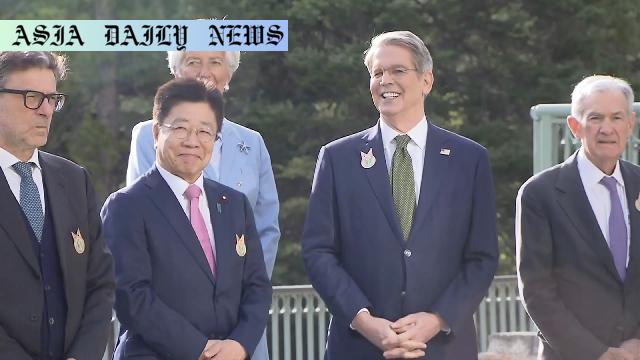Exchange Rates: Finance chiefs from Japan and the US emphasize market-driven approaches, avoiding direct intervention in currency levels.

Market-Determined Exchange Rates: A Shared Commitment
The recent meeting between Japan’s Finance Minister Kato Katsunobu and US Treasury Secretary Scott Bessent in Banff, Canada, highlighted a mutual commitment to market-determined exchange rates. This principle, reaffirmed during the sidelines of the Group of Seven (G7) finance ministers’ conference, underscores the importance of non-intervention in currency valuation. By avoiding direct discussions on specific exchange rate levels, both nations sent a strong signal advocating for financial stability through market autonomy. This approach aligns with global expectations for transparency and trust in economic systems, despite ongoing challenges in global trade dynamics.
Addressing Global Tariff Concerns
At the heart of the discussion was the lingering uncertainty surrounding US tariffs and their broader economic implications. Kato urged a review of the US tariff measures, emphasizing the importance of addressing trade imbalances through structural solutions rather than punitive trade policies. This sentiment was echoed by other G7 finance leaders, highlighting the negative ripple effects that ambiguous tariff policies might impose on international trade and market confidence. The need for collaborative solutions, such as enhancing domestic demand and reducing national budget deficits, was presented as a preferable alternative to tariffs.
Challenges and Potential for Unity in a Shifting Global Economy
As discussions at the two-day G7 meeting progress, the focus remains on fostering unity among member nations amidst divergent priorities. The shared commitment to free trade and non-disruptive policies lays a foundation for navigating complex economic realities. However, it is uncertain to what extent G7 finance leaders can unify their positions when addressing controversial topics such as tariff policies and their repercussions. The anticipated joint statement will likely shed light on their ability to establish a consistent framework that prioritizes economic stability and free trade principles in the global marketplace.
Commentary
The Importance of Market-Determined Exchange Rates
The reaffirmation by Japan and the United States to uphold market-determined exchange rates is a valuable commitment in a global economy marked by uncertainties and volatility. This decision sends a clear message: stable and predictable economic policies foster trust and growth. By refraining from intervening in exchange rate levels, these nations are emphasizing the integrity of market-driven mechanisms, which serve as a foundation for free trade and healthy economic competition.
Broader Implications on Tariffs and Trade Policies
The request by Japan’s Finance Minister to review US tariff policies points to a lingering issue that has been a point of contention for years. Tariffs, though touted as tools to correct trade imbalances, often disrupt global supply chains and hurt economies on both ends of the trade relationship. Kato’s emphasis on structural reforms—boosting domestic demand and addressing budget deficits—as alternatives to tariffs provides a thoughtful and long-term perspective. These measures not only address trade imbalances but also strengthen economies internally, making them more resilient to external shocks.
Unity Among G7 Nations: A Pressing Necessity
The G7 meeting, while a platform for collaboration, also highlights the divergences between member nations in addressing global economic issues. The call for unity, particularly in upholding free trade, is crucial in the current context of complex and interconnected challenges. However, achieving consensus among G7 members—to balance national interests with collective goals—is no easy task. The anticipated joint statement may reveal how effectively these nations can set aside individual differences to present a united front, ensuring economic stability in an increasingly polarized world.


